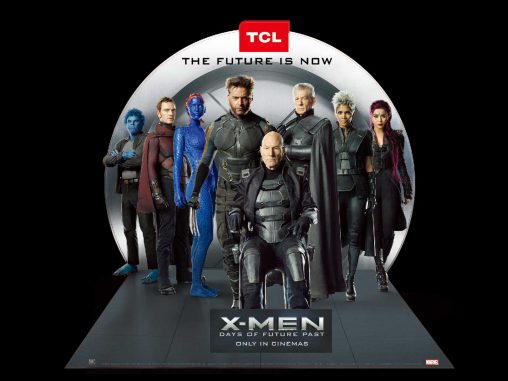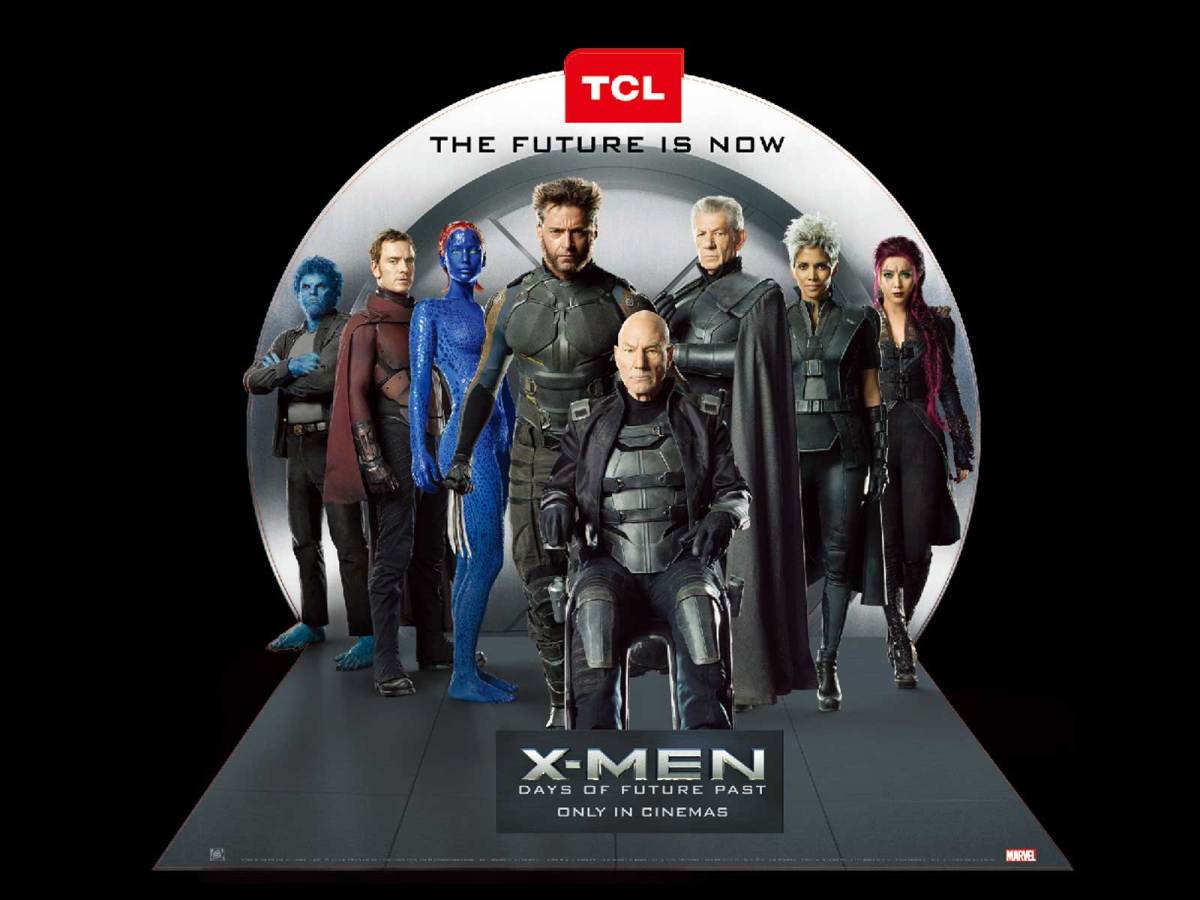Analysis

X-citing, X-hilarating and X-traordinary news out of TCL this week! The Chinese TV company, which last year entertained Tony Stark with the world’s biggest TV, is this year using its worldwide partnership with the new X-Men film, subtitled Days of Future Past, to propel its own X-Men-esque mutation.
There are six premieres in total, taking place mid-May in London, Moscow, Beijing, Singapore, São Paulo and Melbourne.
Here’s the official company line out of TCL’s Guangdong bunker, which we assume is modeled on Professor Charles Xavier’s School for Gifted Youngsters:
TCL, one of the leading players in the global TV industry, is proud to partner with Twentieth Century Fox as the presenting sponsor of all of the premieres of X-Men: Days of Future Past around the world. This marks another major step in TCL’s transformation from being a traditional electronics manufacturer to a global multimedia entertainment technology enterprise.
By sponsoring what promises to be the biggest movie of the year, TCL positions itself as a global leader in entertainment marketing.
(emphasis added)
It’s hard not to chuckle, or at least guffaw, at TCL’s own chimeric ambitions, which so mirrors themes of the X-Men series that the Chinese company appears to have descended into a parody of itself. As with most TV manufacturers remaining in the market, TCL naturally wants to divest itself from relying too heavily on panel sales revenue, so it is unsurprising that it has taken on this metamorphosis. In fact, TCL should be applauded for taking such a pragmatic-cum-enigmatic approach to the troublesome TV market.
Click here to sign up for our free daily newsletter
What exactly does it mean to switch trajectories and will TCL be a force for good or evil? Here’s more from the bunker:
Over the next five years, TCL will shift its revenue model from being product-driven to being split evenly between products and services, and has set an ambitious goal to build a user base of over 100 million home subscribers and 100 million mobile users.
TCL will build on its existing strengths in entertainment marketing to provide top-notch live-streaming content through its Smart TV terminals, including the new TCL Roku TVs available in the US market and the TCL-iQIYI TVs in China.
TCL demonstrated it Smart TV platform to media and Australian dealers at its launch in Melbourne in late March 2014. It includes online video apps including SBS On Demand, SMH.TV, YouTube and Vimeo, along with social media apps and wireless file sharing with iOS and Android devices.
I think it’s fair to say that this platform is still in its infancy in Australia and will be expanded significantly over the next 18 months. Where TCL is likely to falter, at least in Australia, is in becoming a local content distributor. In a market totally dominated by TV networks wanting to own the infrastructure (think TenPlay, PLUS7 and Nine’s Jump In) and Foxtel wanting to preserve exclusivity (see Game of Thrones), TCL’s ambition to have its TV owners paying them for content seems ambitious at best and delusional at worst.
Take third party application Quickflix, which is available across nearly all Smart TVs, gaming consoles, tablets and smartphones. It has quite a comprehensive catalogue of new and old TV shows and a mature place in the market, yet it still recorded a post-tax loss of $6.4 million for the 2013 financial year. Quickflix currently has 118,500 paying subscribers. The point is, even with a sizable number of active customers and broad distribution, retailing content in Australia is a far from profitable exercise.
In the United States, which has deregulated content distribution and a strong syndication heritage, network agnostic services like Hulu and Netflix can operate and thrive, either with ad support or monthly fees, due to their deep catalogues of content (even without the co-operation of premium content wholesaler HBO). That neither of these brands has entered the Australian market, nor a comparable rival, is indicative of the Australian TV landscape’s inhospitable path to profitability.

